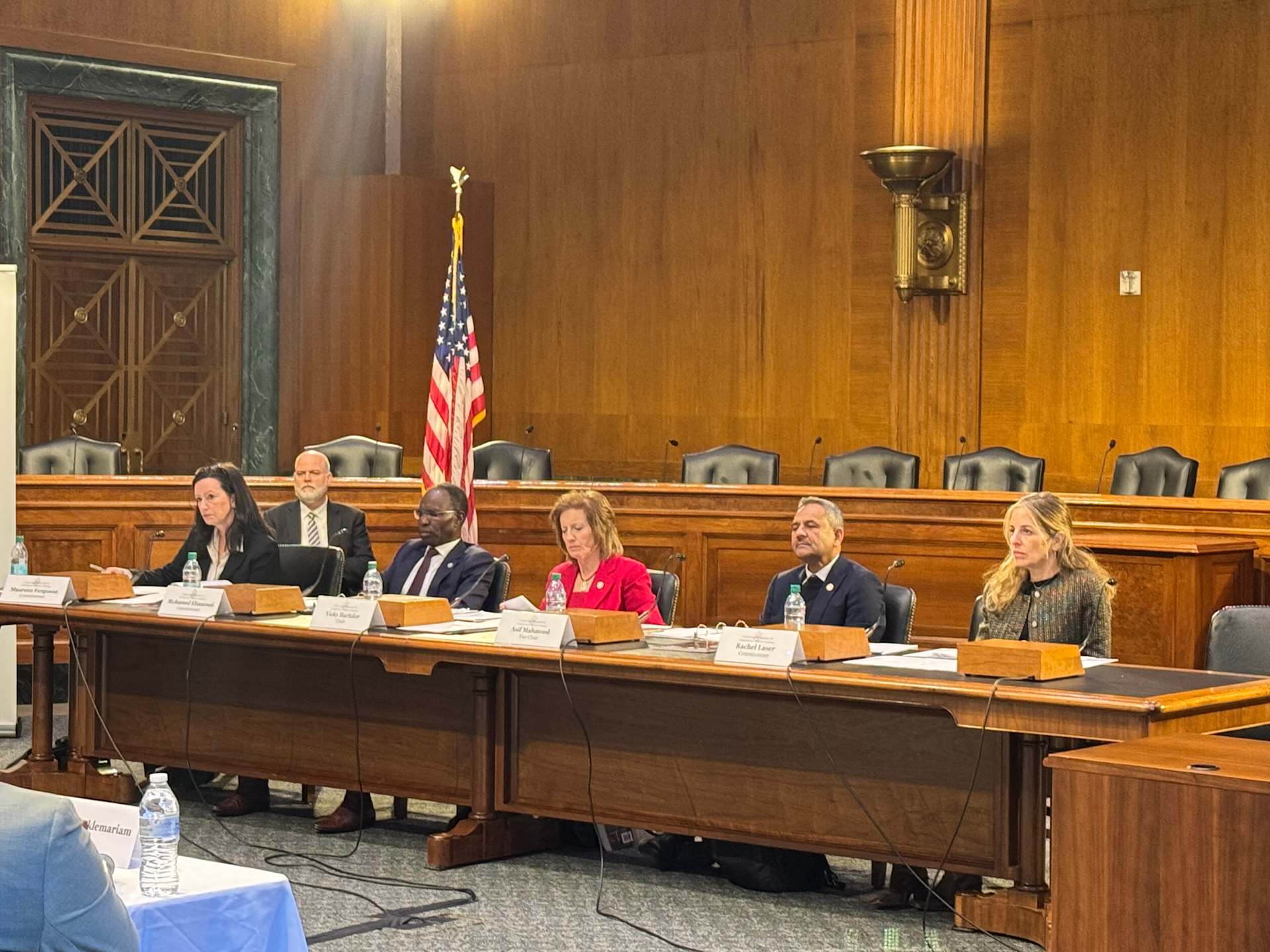 Martha Patricia Molina, a Nicaraguan lawyer and Catholic researcher, urges the U.S. Commission on International Religious Freedom (USCIRF) to "return your eyes to Nicaragua" at a Jan. 13, 2026, hearing. | Credit: Tessa Gervasini/CNA
Martha Patricia Molina, a Nicaraguan lawyer and Catholic researcher, urges the U.S. Commission on International Religious Freedom (USCIRF) to "return your eyes to Nicaragua" at a Jan. 13, 2026, hearing. | Credit: Tessa Gervasini/CNA
Jan 13, 2026 / 17:58 pm (CNA).
Martha Patricia Molina, a Nicaraguan lawyer and Catholic researcher, urged the U.S. Commission on International Religious Freedom (USCIRF) to "return your eyes to Nicaragua."
"In Nicaragua, praying in public is considered a crime," Molina said at a Jan. 13 hearing in Washington, D.C.
USCIRF heard testimony about freedom of religion or belief violations against Christians following the release of the 2025 USCIRF Annual Report. Witnesses recounted their experiences with religious freedom violations in Nicaragua, China, Nigeria, Algeria, Vietnam, Egypt, Burma, Eritrea, and Pakistan.

In Nicaragua, Molina said, "the measures that must be taken need to be more aggressive. Sanction the army. Impose direct economic sanctions. Bring [President] Daniel Ortega and [his wife, Vice President] Rosario Murillo and their collaborators before international justice and prosecute them for crimes against humanity. This year has proven that it is possible."
Molina has conducted a study, " Nicaragua: A Persecuted Church," to show "the horrors done" at the hands of the dictators. Molina said since April 2018 she has documented 19,836 attacks "perpetrated by the dictatorship of Daniel Ortega and Rosario Murillo in Nicaragua against priests, nuns, and laypeople."
"In Nicaragua, altar boys … are harassed and monitored by the national Nicaraguan police and forced to sign documents whose contents they do not understand. Their parents are harassed and threatened with imprisonment if they speak to the media," she said.
The Nicaraguan dictatorship "prohibits the entry of Bibles into Nicaragua and also controls the workshops where the images that Catholics use for veneration are made," she said.
Nicaraguan Catholics are as "afraid as when the disciples of Jesus were afraid after his killing," Molina said.
In Nicaragua, "the lack of religious freedom has profoundly limited the pastoral work of priests," she said. "They are literally forced to be careful about how to proceed when they preach for fear of being in prison or exiled."
Ortega and Murillo have "arbitrarily closed 13 universities and institutes," she said. "With hatred, they have shut down centers for young people who were studying to become priests, and 304 priests and nuns have been exiled from Nicaragua. They are being expelled or prevented from entering the country."
Due to the lack of priests now, "there are dioceses in Nicaragua that are surviving only with 30-40% of their priests," Molina said. "As a consequence, communities in the interior of Nicaragua see their religious practices limited. They can no longer go to confession regularly."
She added: "It is with urgency that we need to stop the criminals or they will continue to advance, which will eventually reach us in the United States."
U.S. leadership
"At a time when Christians abroad face attacks simply for their faith, U.S. leadership is critical now more than ever," Commission Chair Vicky Hartzler said during the Jan. 13 hearing.
Hartzler said in an interview after the hearing: "We want to have more countries designated as countries of particular concern, as special watch lists, that entity is of particular concern. We work tirelessly, constantly visiting with people on the ground, the countries hearing their stories."
"We are very thankful the president designated Nigeria as a country of particular concern and is starting to take action to help people there," she said. "But there are many other countries who are repressing their people, and we need to act on those countries as well. The United States has a tremendous amount of influence and opportunity to make a difference, and we should use our voice and our spot in the world to be able to help others."
The commission also heard from U.S. representatives and senators who shared their support for the mission of USCIRF and legislation to protect religious freedom in the U.S. and abroad.
"The United States is a Christian nation," said Rep. Riley Moore, R-West Virginia. "We have a unique duty to defend Christians wherever they are being persecuted, and I will never stop fighting for our persecuted brothers and sisters in Christ."
Rep. Mark Alford, R-Missouri, said China under Xi Jinping and the Chinese Communist Party "does not hide its actions." He added: "Officials openly tell religious leaders that loyalty to the party is more important than loyalty to God Almighty." He touted legislation to reinforce China's designation as a country of particular concern.
Hartzler said: "Religious leaders and laypersons, including Jimmy Lai, faced furious charges of fraud and subversion. In recent years, the government has demolished churches and removed crosses from public view."
Grace Drexel testified about her father, Pastor Ezra Jin, who is imprisoned in China.
Jin "was arrested by the Chinese authorities, along with 27 other pastors and church leaders from Zion Church; 18 total remained imprisoned," she said. The October "crackdown represents the largest takedown of an independent Christian population in China since the Cultural Revolution."
"I urge this commission to recognize that what is happening in China is not merely a domestic matter but a global threat to religious freedom and human dignity," Drexel said. "If the international community remains silent, we signal acceptance and impunity for such traveling of universal human rights. And unfortunately, what happens in China does not stay in China."










